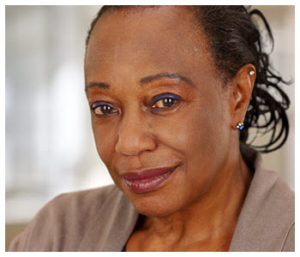My mother wanted to be a pediatrician. She was bright and ambitious, as well as beautiful. Her life could have been so much more, should have been so much more.
She attended a fine college at age  16, but didn’t stay. I suspect her youth had something to do with it.
16, but didn’t stay. I suspect her youth had something to do with it.
Within a few years she was working as a dental hygienist, not the career she had hoped for, but in that job she met my father, they dated for several years, and then they married. This was what my parents’ generation did – they met, they dated, they married. She took the homemaker role, while my father became the sole provider.
My mother couldn’t contain her innate desire to learn and my father never wanted to contain it either. She went back to college when I was four years old, about eight years into her marriage, and eventually graduated with honors from an excellent school.
How to Break Unhealthy Relationship Habits
My mother’s accomplishments aside, I was well aware of the difficulties in my parents’ relationship. Here’s just a taste of what I saw:
- They had few interests in common. If anything their interests couldn’t have been more divergent.
- Their approach to affection seemed out of whack. My father was either not into PDAs (public displays of affection), or my mother’s evident emotional neediness put him off.
- There may have been a lack of sexual spark between them. This is an impression that I cannot confirm, but I base it on things my mother said and my own observations.
- They spent too much time apart. My father traveled in his work, yet when he was home, he spent his recreational hours in his own pursuits – without my mother.
- While my parents appeared to banter pleasantly at times, I suspect that communication was a problem. My mother was loud, biting in her criticism, and generous only with complaints.
- Their temperaments were dramatically different. My father was affable and easygoing, bordering on irresponsible in certain ways. My mother was the stereotypical narcissist and craved the spotlight, no doubt exacerbated by my father’s lack of attention.
How to break these unhealthy relationship habits that I observed?
I vowed to never marry a man who traveled, to never be a loud woman, to never complain in a relationship, to be generous with my love in all ways.
When the Best Laid Plans Backfire
I would do everything I could not to repeat my mother’s mistakes, and surely that would increase the likelihood that if I married, it would be “good.” Better than good. I would make my husband happy.
As for the first item I promised myself – not to marry a man who traveled – my husband traveled a “normal” amount when our union began. So I entered my marriage with, what I thought, was a man who wouldn’t be absent from our home the way my father was.
That changed in Year 2 of marriage.
As for the rest, unfortunately, I went too far. At least, that’s how I see it. By accepting so much, by not standing up for myself, by never saying no when my husband wanted to go off on his own or pursue a new venture that added to the time we weren’t together, I encountered marriage troubles of my own.
Over the years, they backfired.
Parenting Patterns: The Good, the Bad, the Undetermined
I also made myself promises with regard to my parenting, were I ever to have children. There, I hope, the promises that I made and kept have offered a better outcome.
- I swore I would never try to overshadow my children or take ownership for their accomplishments.
- I would not force information upon them that has no business being told to a child, much less one’s own child.
- I would respect the boundaries of their privacy, but leave the doors open for sharing what they were comfortable sharing.
- I would support them and love them unconditionally, without cruel criticisms that damage self-esteem.
Among the behavioral patterns I would absorb – to the detriment of my health – food as anesthesia against emotional pain, and related body-image issues. I have spent a lifetime holding those patterns at bay and trying not to encourage similar distortions in my children.
 My mother also provided an excellent example in certain ways that I appreciate tremendously. She taught me the value of working hard, of earning what I wanted, the pleasure of learning.
My mother also provided an excellent example in certain ways that I appreciate tremendously. She taught me the value of working hard, of earning what I wanted, the pleasure of learning.
She shared her love of art and books with me, which has been a legacy that continues to provide enormous satisfaction. Her love of languages was also passed along. She was a native English speaker, but also spoke Spanish and eventually, Japanese, which she began studying in her 60s.
That was a legacy from her own upbringing. Her father spoke English, Russian, and Portuguese.
My sons are still young – young men, really. I imagine when they look back, they will also resolve not to repeat their parents’ mistakes. Of course, I have no idea what they will consider as mistakes. I can only hope they will also find positive patterns applicable in any relationship – respect, tolerance, communication, love.
You May Also Enjoy

I found your statement about what your kids will vow not to do so interesting. I was thinking of that the other day with my kids. I know they see patterns that they don’t want to repeat. Oh well. We try to make the best decisions we can, don’t we?
Yes, we try to do what we can, Cuckoo Momma. I think the more conscious we are of what went well and what didn’t, our role in things (both good and bad), at least we stay open to making improvements ourselves – and also modeling that for our children. But yes, we make the best decisions we can with what we know.
We try to fix our parents mistakes and that’s commendable. As long as we don’t expect perfection from ourselves, we can improve our children’s lives. I like the values your mother taught you.
I vowed not to “settle” or be trapped with a man who was an a$$wipe; as it’s turned out, I have yet to stay with any man too long-term, though whether that’s because too many men are not the right match for me, or I’m too picky, who knows?
No regrets. My son, so far, has been a loving, sensitive boyfriend/partner who’s not afraid to show affection, but doesn’t carry PDA’s too far, either. I can take a little credit for that, but most of it is his own doing and choices.
There’s always a mix, I suppose, of what we want to repeat and emulate from our parents – and what we vow to do differently. And sometimes the knee-jerk goes too far the other direction. I do agree that we just do the best we can – as we can only surmise our parents did. My oldest daughter holds a bit of angst toward me for reasons that must be real to her, but then, like, the other day, she said (and she has a 2 year old and is pregnant with twins currently), “Mom – I had such a happy childhood and you always made holidays so much fun. That is what I want for my kids and the way I want our home to be.”
Be still my heart. I never thought I’d hear those words from her or that she felt that way when looking back at her childhood. Perhaps sometimes it takes being a parent yourself before you see your mother or father with a little more understanding.
It’s amazing the lessons we learn (good and bad) from watching our parents’ relationships. That question drives my actions when I think about my own kids….and grandkids. What kind of example is my life setting for them….and how much therapy will it take to overcome it later? I think we always say that we won’t repeat the sins of our parents, but inevitably and inadvertently, we will do something the same. Parenting is never perfect.
Oh, this one speaks to me, D, on so many levels. I too was very observant of my parents and I vowed to do things differently. I really was convinced that I could. But the habits are so ingrained – there are patterns that we’re not even conscious of. While I set out to look for a man with a very different temperament from my father, amazingly, across an ocean and in a completely different culture, I met and chose to marry a man with an eerily similar childhood path as my dad’s. I don’t know how this happens. Maybe we are comfortable with certain types and we end up gravitating toward the familiar, or we are trying to have a second chance with what didn’t succeed growing up? My husband is a better version, a more modern model, of my dad.
And as a mother I am so similar to my own mother. For the most part I became the yin to her yang, but at the same time I’ve continued the most harmful quality, which is to expect “perfection.” I really didn’t think i was, but lately my 9-year-old has been saying things to me like, “Your standards are so high. They’re too high.” When he said it more than once I realized I needed to take a long hard look at myself.
But one thing I feel sure of is that we are more aware, more self aware, than our parents were. Whatever faults you have, D., or that you may have inherited, you’re cognizant of them, and you’re in tune to your children. I am hoping that goes a long way.
Reading this reminded me so much of my family. Your mother sounds like mine, the way they met is like mine, your mother’s life situation is like mine. There are so many similarities.
I came to this site by googling “I don’t want to make the mistakes my parents made”. And I’m glad I found this. Do you think it is possible to free yourself from the environment you were raised in though? I don’t want my family to be anything like the one I was raised in, but I’m worried because it’s all I know. I can see the good sides of other families, but I have no idea how they function truly in times of struggle and pain and anger, so the only way I know how to deal with those kinds of negativity in family settings with children is how my family dealt with it. But I don’t want that because it left me and my brother with major self esteem and social issues that have, and are still taking me, years to recover from.
What would your advice be on how to learn to discipline and be firm but fair? I don’t want my children or husband or lover to take advantage of me, but I’m afraid I will lose their trust or the chance to have a good relationship with them if I try to be firm or harsh.